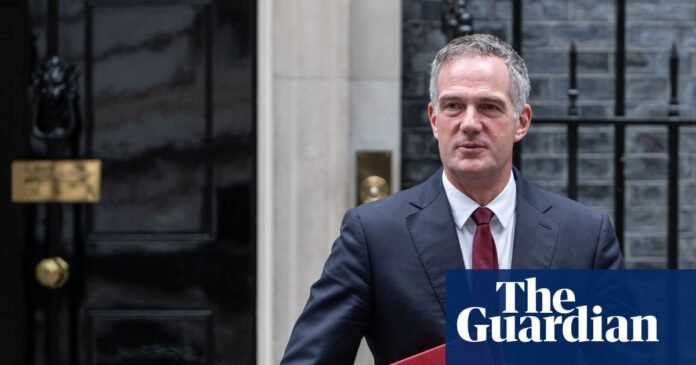The technology secretary has apologised to a generation of children who have been let down by governments failing to keep them safe from toxic online content.
Peter Kyle said the length of time it had taken to bring in laws to keep children safe online had “sold a whole generation of children downstream” and that politicians must find a way to act more swiftly in the face of rapid technological changes.
Kyle made the remarks in an interview with Mumsnet, the parenting website, to mark the introduction of online safety measures for children that will put more responsibility on internet companies to protect them from harm. He said it was “the biggest step forward for a young person’s experience online since the internet was created”.
He added: “I want to apologise to any kid who’s over 13 who has not had any of these protections, to parents who have strived and failed to keep their kids free from all this content because we have let them down.”
Kyle said it “cannot be allowed to happen again” that urgent safety measures made necessary by technological advances should take seven years to come into force. He said a whole generation of children had been exposed to “torrid toxic material” because of the failure of politicians.
Kyle is under pressure to go further in clamping down on social media use by children, and his department has been looking at curfews and time limits to help prevent addiction. Beeban Kidron, a crossbench peer and prominent internet safety campaigner, urged Kyle on Thursday to update the Online Safety Act to include measures tackling disinformation and the addictive nature of social media platforms.
Kyle told Mumsnet he was looking at things that could be done “very rapidly” and called for “a national conversation about what a healthy childhood looks like online”. “We do it offline all the time. Parents set curfews and diet and exercise as part of the language and the vocabulary within families. We haven’t had that national debate about what health looks like and a healthy childhood looks like online yet,” he said.
Justine Roberts, the founder and chief executive of Mumsnet, said the legislation would help stop children being exposed to damaging and inappropriate content online. But she said it must “only be the beginning” of changes to online safeguards for children, with teenagers spending 35 hours a week on smartphones at a cost to their mental health.
“Big tech platforms still expose too many children to harm through addictive algorithms, and parents are deeply worried about the effects of social media on the still-developing brains of their children. The government must go further and faster to protect kids,” she said.
The legislation means that illegal content must be removed from platforms, such as suicide forums, and age has to be verified before content can be supplied to children to limit it to those 13 and over. X announced on Thursday that it would introduce age checking measures to prevent under-18s from accessing adult content, including pornography.
after newsletter promotion
Kyle suggested banning smartphones for teenagers was not the answer because many parents wanted to be able to monitor their children and for them to have travel passes on phone wallets, communicate online and pay for things digitally. “Kids themselves overwhelmingly say make us safer online, prevent us from seeing things we shouldn’t be seeing. But please don’t take the phones [away from us] because also, there’s a lot of benefits to it,” he said.
Asked whether he could raise the digital age of consent to 16, Kyle said that would be an easy thing to do if he concluded it was right.
“The question for me is, what age should children be allowed to be online and have access to social media, rather than the digital age of consent,” he said. “I can pass the law, as I have, that says that no child under 13 should have access to social media, if you are having it from 13 up it has to be age appropriate from 13 up. So no child under 18 should have access to porn for example. No child under 13 should have violent misogyny coming into their feed. I don’t think digital age of consent would deliver the step-change that people think it would.”






